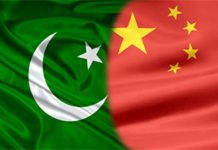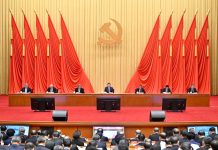BEIJING: Putonghua, the common language, is an important means of building a sense of shared national identity in a country that is home to 56 ethnic groups.
Generally speaking, the level of employment in regions with a good command of the common language is relatively good. Those who do not speak Putonghua tend to be in the remote poorer rural areas and it can be hard for them to escape poverty and backwardness without knowing and speaking Mandarin. Young people of non-Han ethnic groups in these remote areas need a better grasp of the common language to improve their life prospects.
Children are the future of the Chinese nation, so the government should ensure that students of all ethnic groups have a good knowledge of the national common language. Schools should ensure that all students nationwide gain proficiency in spoken and written Mandarin during the nine-year compulsory education stage.
Against the background of globalization and marketization, regional isolation has been broken and the flow of various production resources, especially human resources, have increased. As a result of this, some children from ethnic minority groups with their own languages now speak Mandarin predominantly. This is an inevitable trend.
But the national common language itself is the product of ethnic integration, and all ethnic languages have contributed to its formation. So while popularizing Mandarin, efforts should be made to cherish and protect ethnic languages and local dialects, as each dialect and ethnic language is a precious resource of the national common language.
China’s Constitution and the Law on Regional National Autonomy stipulate that the country should promote the popularization of the national common language in all areas, but they also stipulate that all ethnic groups in China have the freedom to use and develop their own spoken and written languages, as they are also integral parts of Chinese culture.
-The Daily Mail-CGTN exchange item






